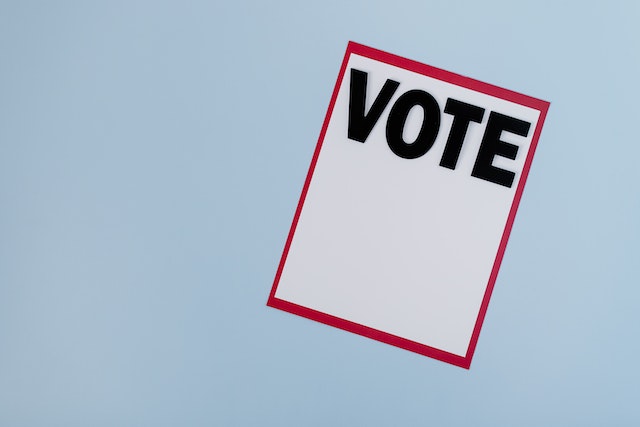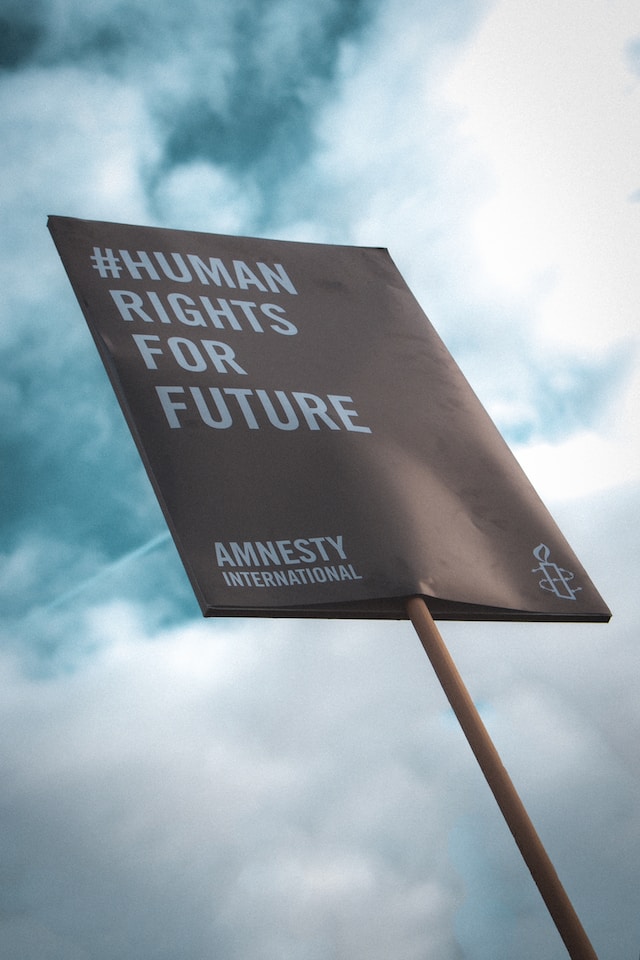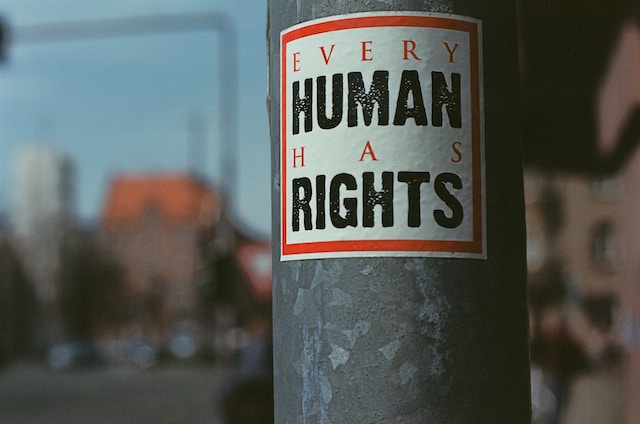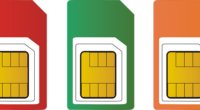political rights give individuals the power to participate in government and decision-making processes, human rights are universal entitlements that protect every individual from discrimination, violence, and abuse.
What are political rights?
(Photo by Tara Winstead)

Political rights are the set of legal entitlements that enable individuals to participate in political activities and influence decision-making processes. These rights include the right to vote, run for public office, join a political party or association, and express opinions on political issues without fear of persecution.
One of the fundamental aspects of political rights is the principle of democracy. Democracy provides citizens with equal opportunities to participate in shaping their society’s governance structures. Political rights uphold this principle by guaranteeing that every citizen has an equal voice in determining who governs them.
Another essential characteristic of political rights is that they allow individuals to hold those in power accountable for their actions. With these rights, people can demand transparency from their leaders and access information about how decisions are made.
It’s worth noting that not all countries have strong systems in place for upholding political rights. In some nations, governments may restrict or even deny access to certain liberties like voting or freedom of speech based on factors like gender identity or religious affiliation.
What are human rights?
(Photo by Christian Lue on Unsplash )

Human rights are the basic rights and freedoms that every person is entitled to, simply because they are human beings. These rights encompass a wide range of areas, including social, economic, cultural and political aspects of life.
One important aspect of human rights is that they are universal – meaning they apply to everyone in the world, regardless of their race, gender or nationality. Human rights also protect individuals from discrimination and ensure equal treatment under the law.
Some examples of human rights include freedom of speech and expression, the right to education and healthcare, protection against torture or cruel punishment, as well as the right to participate in political activities such as voting.
The concept of human rights has evolved over time and is now recognized by international laws such as The Universal Declaration on Human Rights adopted by United Nations General Assembly in 1948. However many countries still struggle with implementing these laws leading to widespread violations across all continents.
Political rights Vs. Human rights – Key differences
Political rights and human rights are two different concepts that serve distinct purposes. While political rights focus on the power citizens have in relation to their government, human rights emphasize fundamental freedoms and protections all individuals should be entitled to regardless of nationality, race or creed.
One key difference between political and human rights is that the former can vary depending on the country’s laws, whereas the latter are universal principles recognized by international law. Political rights include voting, running for office and participating in public affairs while human rights encompass freedom from discrimination, torture and slavery.
Moreover, political rights often depend on citizenship status whereas human right applies to everyone without exception. This means that a person who is not a citizen of a particular country would still be protected by basic human right standards even if they do not have access to certain political privileges.
Another crucial distinction is that while governments may grant or restrict political liberties as they see fit, it’s widely accepted globally that no one should violate an individual’s basic human dignity under any circumstances. Thus governing authorities must respect such entitlements at all times since violating them would constitute abuses against humanity.
Ultimately understanding these differences helps people make more informed decisions regarding how they interact with governments both domestically and internationally as well as how they advocate for themselves concerning their personal liberty interests.
Examples of political rights
Political rights are a set of legal entitlements that grant citizens the ability to participate in political activities, express their opinions and exercise some control over government decisions. Examples of political rights include the right to vote, freedom of expression and association, and the right to run for office.
The right to vote is considered one of the fundamental political rights in many countries around the world. It gives citizens an opportunity to have a say in their government’s decision-making process by choosing representatives who will make laws on their behalf.
Freedom of expression is another essential political right that allows individuals to convey their ideas without fear of persecution or censorship. This includes verbal speech as well as written publications such as books, newspapers, magazines, blogs and social media.
The right to assemble peaceably in groups or associations is another critical aspect of political rights which allow people with similar interests gather together for a common cause while being protected from any harm.
Running for public office also falls under this category. The ability for anyone regardless his/her background can seek public office provides equal opportunity to all citizens seeking change through participation at a higher level within democracy.
These examples show how important it is for governments everywhere preserve these important aspects so that every citizen has access them equally without compromise
Examples of human rights
Human rights are basic entitlements that every human being is entitled to, regardless of their race, gender or any other status. Here are some examples of human rights:
Right to life: Every individual has the right to live without fear of arbitrary killing or execution.
Freedom from torture: No one should be subjected to cruel treatment such as torture or degrading punishment.
Right to education: Everyone has the right to access education and acquire knowledge freely.
Freedom of expression: Every person has the freedom to express themselves in a peaceful manner without fear of retaliation.
Equal protection under law: All persons must be treated equally before the law and have equal access to justice.
Right to work: Workers have the right to fair wages, safe working conditions and job security.
Health care services: Every person has a right to health care services necessary for their well-being.
These examples illustrate how human rights extend beyond just political freedoms but include social and economic entitlements as well, ensuring that all individuals can live with dignity and respect regardless of their background or beliefs.
What is the relationship between human rights and politics?
Human rights and politics have a complex relationship. Human rights are fundamental to the dignity of every human being, while politics govern how we live together in society. The two are intertwined because political decisions can shape the protection or violation of human rights.
When governments prioritize human rights, they create policies that protect people’s freedom, security, and equality. Conversely, when governments neglect these values or actively infringe upon them through laws and policies that discriminate against certain groups or individuals, it leads to violations of their basic human rights.
The Universal Declaration of Human Rights outlines the importance of protecting individual freedoms from government abuse. This document emphasizes that every person is entitled to equal treatment before the law without discrimination based on race, gender identity, sexual orientation or any other status.
Humanitarian aid organizations like Amnesty International monitor global governance structures for signs of violating these principles by punishing those who speak out against abuses with arbitrary detention and torture.
Politics play an important role in promoting respect for human rights around the world. When leaders prioritize justice over power at all times regardless of public opinion or partisan interests than everyone benefits from their actions no matter where they live in the world.
What is the difference between personal and political rights?
Personal rights and political rights are two distinct categories of human rights. Personal rights refer to individual freedoms that every person is entitled to without interference from the government or any other entity. These include the right to life, liberty, and security of person; freedom of thought, conscience, and religion; freedom of expression and association.
On the other hand, political rights are those that relate to participation in government structures or processes. These include the right to vote in elections, stand for public office if qualified, form political parties or interest groups as well as participate in peaceful protests.
While personal rights guarantee an individual’s basic freedoms such as privacy and autonomy over their body and mind, political rights enable citizens’ meaningful participation in governance by electing leaders who represent them or voicing out concerns on matters affecting them directly.
It is essential to note that personal and political rights complement each other since they both ensure individuals have a chance at living fulfilling lives free from oppression while participating actively in creating change where necessary.
What are the 7 principles of human rights?
The Universal Declaration of Human Rights outlines seven core principles that form the basis for human rights protection. These principles are indivisible, interrelated and interdependent, and encompass all aspects of human life.
Dignity is the first principle which states that every person has inherent dignity and worth, regardless of their race, gender or religion. This means that no one should be treated as less than human based on these factors.
Equality is another fundamental principle which ensures that everyone has equal access to basic resources like food, water and shelter. It also guarantees equal treatment under the law without discrimination.
Freedom encompasses many different types of freedoms including freedom of speech, assembly and religion. People should have the right to express themselves freely without fear of persecution or retaliation.
Justice is a key principle in ensuring accountability when people’s rights are violated. It provides victims with legal recourse to seek justice against perpetrators who violate their rights.
Solidarity emphasizes our shared humanity by encouraging us to support each other in times of need. We must work together as a society to promote social justice and protect those whose rights are threatened.
Participation involves giving people a voice in decisions affecting their lives through voting or political participation. Every individual deserves an opportunity to participate in public affairs on an equal basis with others.
Sustainability recognizes our responsibility towards future generations by protecting natural resources for future use while ensuring economic growth does not come at the expense of environmental degradation or social injustice.
These seven principles provide a framework for understanding what constitutes human rights violations across various contexts worldwide. They serve as guiding values towards creating societies where every person can live free from oppression and discrimination while enjoying full civil liberties guaranteed under international law
Featured Image By –








